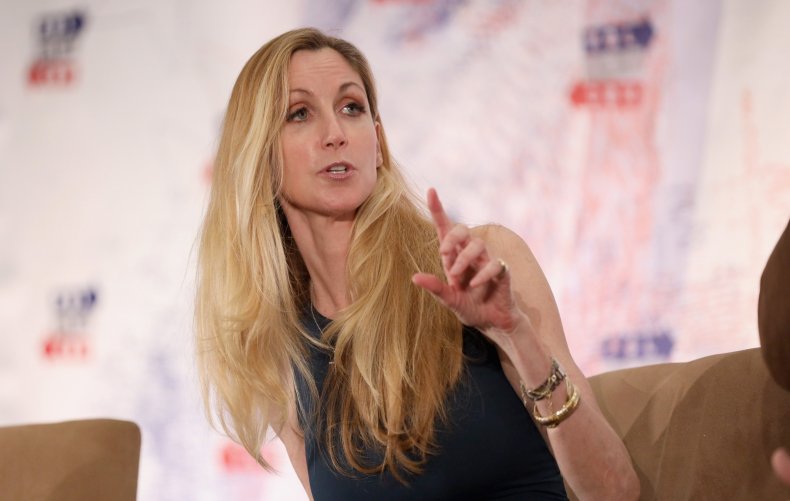Conservative media personality Ann Coulter accused her colleagues in conservative media of "lying" about former President Donald Trump's popularity, saying the Republican base has begun to move on from the person who has been its de facto figurehead since his election in 2016.
In an audio clip posted to her Substack on Tuesday morning, the In Trump We Trust author highlighted numerous conservative victories across the country since 2020 that had little to do with Trump and everything to do with the appeal of the broader conservative platform, focusing intently on Virginia Governor Glenn Youngkin's victory in the once-blue state in late 2021 and the lingering appeal of (Trump-endorsed) Sarah Palin, whose political comeback has propelled her to a leading position in the race to represent Alaska in Congress.
Coulter equated Trump's most loyal supporters to those of the Grateful Dead, following him from place to place, listening to the same songs and "wearing the costumes" indicative of a fan club, rather than the embodiment of a broad political coalition.

It's not the first time Coulter has questioned Trump's viability as the party's presumptive nominee for president in 2024. In January, Coulter published a column dissecting Trump's poll numbers, concluding that his low net favorable ratings with key demographics posed a potential weak spot for Trump in another run.
Entering the 2022 midterms, not only is Coulter is questioning whether Trump is viable, but whether he as a leader of a political movement is viable at a time when other conservative leaders are appearing to pick up the mantle.
Coulter argued that Trump-styled politics—particularly in battleground states—could leave Republicans vulnerable in November, and that Trump often isn't leading the political conversation but mirroring it, involving himself in campaigns only when a candidate appears to be a sure bet for victory.
"Trump's primary endorsements, by and large, you figure out who's going to win, wait until the last minute and leap in front of the parade pretending to be leading it," Coulter said. "He didn't do that in Georgia. When he goes off and does his own thinking, it doesn't turn out so well.
"You don't need to suck up to Trump anymore, talk radio hosts, TV hosts, Republicans running for office. He's done. He's over."
Though numerous Republicans have begun preparing presidential campaigns—including figures like former Vice President Mike Pence—the likelihood of Trump as a candidate ultimately comes down to him, even as he grapples with high-profile court cases in New York and Florida. Trump was the top pick to run as his party's nominee at CPAC this year and remains a heavy favorite in early polling on the 2024 presidential field.

